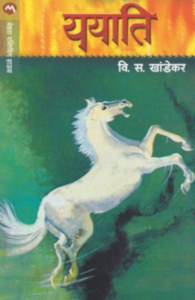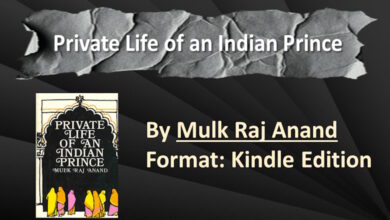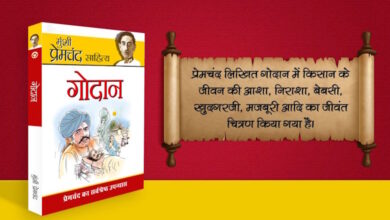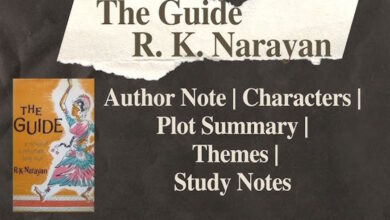Yayati by V.S. Khandekar – Book Review, Summary
Yayati by V.S. Khandekar – Book Review | A Timeless Tale of Desire, Duty, and Destiny
 “Yayati” by V.S. Khandekar is not just a novel—it’s a profound reflection of human emotions, desires, and the eternal conflict between material pleasures and moral duties. This Marathi classic, originally published in 1959, earned the prestigious Jnanpith Award and is considered one of the most powerful reinterpretations of Indian mythology in modern literature.
“Yayati” by V.S. Khandekar is not just a novel—it’s a profound reflection of human emotions, desires, and the eternal conflict between material pleasures and moral duties. This Marathi classic, originally published in 1959, earned the prestigious Jnanpith Award and is considered one of the most powerful reinterpretations of Indian mythology in modern literature.
V.S. Khandekar, a celebrated Marathi author, uses the mythological tale of King Yayati from the Mahabharata to explore the human mind and its endless thirst. The book was later translated into English and various Indian languages, making it accessible to a broader audience.
In this review, we’ll dive deep into the story, characters, themes, writing style, and its relevance for today’s readers. Whether you love mythology, enjoy philosophical reads, or are just looking for a meaningful Indian novel, “Yayati” is definitely worth your time.
Plot Summary – The Story of King Yayati
The novel is based on the mythological story of King Yayati, who was cursed with premature old age by his father-in-law, Sage Shukracharya. The reason? Yayati, despite being married to Devayani, falls for her maid Sharmishtha and marries her too—breaking his promise and angering the sage.
The twist? Yayati is granted the unusual boon to exchange his old age with someone else’s youth. Surprisingly, his youngest son Puru agrees to take on his father’s old age so Yayati can continue enjoying youth and worldly pleasures.
But as years pass, Yayati realizes that indulgence never truly satisfies the soul. His journey from lust to renunciation, from ego to enlightenment, forms the heart of this novel.
Themes Explored in the Book
1. The Endless Nature of Desire
At the core of “Yayati” lies the theme of insatiable desire. Yayati’s confession, “Desire is never satisfied by indulgence,” sums up the whole message of the book. He represents every human being chasing pleasure, believing that happiness lies in youth, beauty, and physical satisfaction. But with time, he learns that no amount of indulgence can fill the emptiness inside.
2. Moral Responsibility vs. Personal Pleasure
Yayati is a ruler, a husband, a father—but he often chooses pleasure over duty. This constant tug-of-war between dharma (duty) and kama (desire) is what makes the novel relatable, even in today’s times. His actions hurt his loved ones, especially Devayani, Puru, and even Sharmishtha.
3. The Cost of Ego and Power
Yayati is intelligent and powerful but is blinded by ego. He believes he deserves youth and joy, even if it means exploiting his own son. Through this, Khandekar beautifully shows how ego can cloud judgment, leading to regret.
4. Transformation and Redemption
Despite all his mistakes, Yayati eventually learns and grows. The novel doesn’t end with punishment but redemption. This arc of transformation adds spiritual depth to the story and leaves readers with a lasting message.
Characters That Stay With You
Yayati – The Protagonist
He is a deeply flawed, yet honest character. His inner turmoil, his hunger for pleasure, and later his guilt and growth are portrayed with powerful realism. Khandekar doesn’t glorify Yayati but shows him as a mirror to our own lives.
Devayani – The Wronged Wife
Devayani is proud, angry, and emotionally wounded. She represents the voice of self-respect and betrayal. Her pain is justified, but her coldness also makes us question the price of pride.
Sharmishtha – The Silent Strength
She is Devayani’s maid and Yayati’s second wife. She is gentle yet strong, quiet but courageous. Sharmishtha is the real hero for many readers. Her sacrifices, love, and maturity make her an unforgettable character.
Puru – The Selfless Son
Puru gives up his youth for his father’s desire. His role teaches us about self-sacrifice, devotion, and also the unfair expectations placed on children by parents.
Writing Style and Language
V.S. Khandekar’s writing is poetic, philosophical, yet highly accessible. The book, even when translated into English or Hindi, carries the emotional richness of the original Marathi version. The language is simple yet powerful. The dialogues are reflective, sometimes even meditative.
The narrative shifts between the thoughts of Yayati and other characters, giving a layered understanding of every emotion. Khandekar doesn’t lecture; he lets you feel the message through the characters’ journeys.
Why You Should Read “Yayati” Today
In today’s fast-paced world where we are always chasing more—more success, more luxury, more love—“Yayati” makes us pause and reflect. The novel is ancient in its setting but modern in its emotions.
It’s a book that encourages introspection. You may see a bit of yourself in Yayati’s desires, in Devayani’s anger, or in Sharmishtha’s patience. And that’s what makes this novel timeless.
Even after decades, “Yayati” remains relevant, touching, and thought-provoking. It’s not just a story, but a philosophical guide told in the form of a gripping narrative.
Strengths of the Book
-
Deep philosophical insights in simple words
-
Strong character development
-
Emotional and moral complexity
-
Beautifully adapted from mythology
-
Strong social commentary relevant to all ages
Some Points to Keep in Mind
-
The pace is slow in parts, especially if you’re used to modern thrillers
-
Requires reflective reading; not a casual one-sitting read
-
Some readers may find Yayati’s decisions frustrating—but that’s part of his human nature
Final Verdict – 4.8/5
“Yayati” by V.S. Khandekar is a masterpiece of Indian literature. It beautifully blends mythology with psychology, passion with purpose, and history with humanity. It’s a must-read for anyone interested in meaningful Indian novels, especially those that go beyond entertainment and dive into deeper truths of life.
If you are looking for a powerful, emotionally charged, and soul-touching novel, add “Yayati” to your reading list. Buy on Amazon
FAQs – Yayati by V.S. Khandekar
Q1. What is the main message of “Yayati”?
Ans: The main message is that desire is never-ending, and true peace comes only from inner contentment, not external pleasures.
Q2. Is “Yayati” suitable for modern readers?
Ans: Yes, despite being based on mythology, the emotional and moral struggles are very relatable for today’s readers.
Q3. Who is the real hero in the novel?
Ans: While Yayati is the protagonist, many readers consider Sharmishtha or Puru as the true heroes for their strength and sacrifices.
Q4. What age group is this book best for?
Ans: Ideal for readers aged 18 and above, especially those interested in literature, mythology, or philosophy.
Q5. Is the book available in English and other languages?
Ans: Yes, “Yayati” has been translated from Marathi into English, Hindi, and other Indian languages.
Q6. Why did V.S. Khandekar win the Jnanpith Award for this book?
Ans: He received the Jnanpith Award for his literary brilliance in presenting mythological themes with modern relevance, emotional depth, and philosophical insight.
Yayati by V.S. Khandekar – Book Review
FlipToKart Review Score 5/5
Total Review Score
“Yayati” by V.S. Khandekar is a masterpiece of Indian literature. It beautifully blends mythology with psychology, passion with purpose, and history with humanity. It’s a must-read for anyone interested in meaningful Indian novels, especially those that go beyond entertainment and dive into deeper truths of life.




